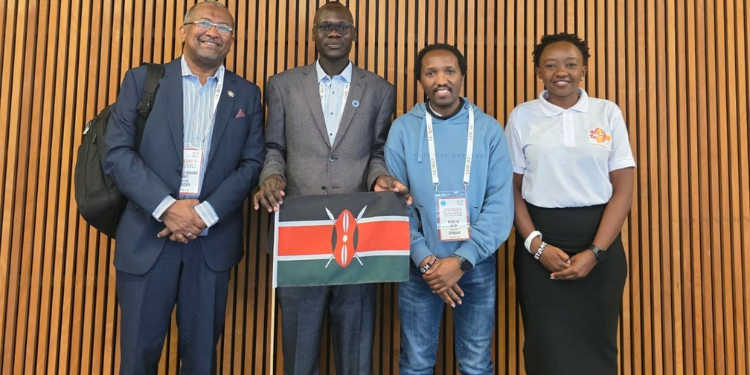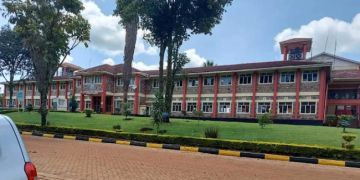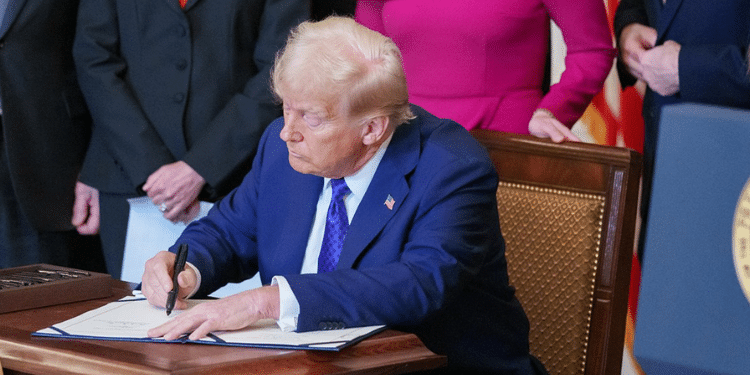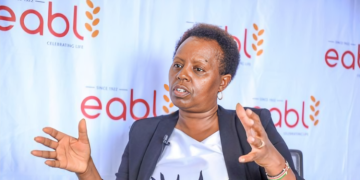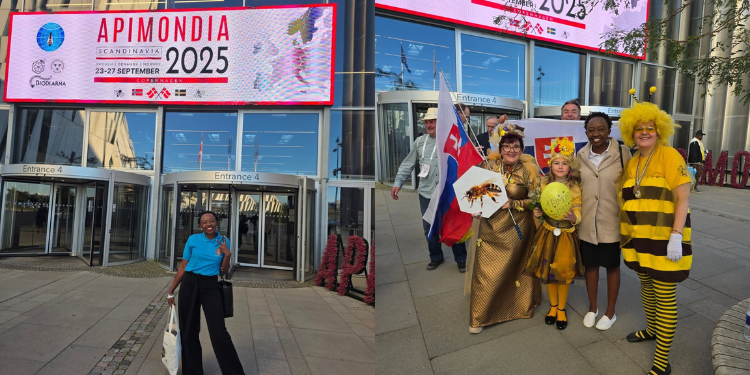Charlene Ruto, daughter of Kenyan President William Ruto, represented Kenya at the 49th Apimondia International Apicultural Congress held in Copenhagen, Denmark, from September 23 to 27, 2025.
This prestigious global event brought together over 7,000 participants from 121 countries, including scientists, beekeepers, policymakers, and industry leaders.
Charlene Ruto at Apimondia Congress
Apimondia, the world’s largest gathering of beekeeping professionals, featured a dynamic blend of scientific presentations, cultural exhibitions, and trade showcases.
The 2025 edition was jointly hosted by Denmark, Sweden, and Norway, under the theme “Bee Engaged: Building Global Solidarity Through Apiculture.”
Charlene Ruto, founder of the SMACHS Foundation, described the experience as deeply inspiring.
“The International Meeting of Beekeepers was one for the books. As a newbie to the Apimondia Congress, it was my honor to be among young people representing the beekeeping value chain. The innovations, creativity, and honey tasting took me back to the first time I opened a hive and fell in love with bees.”
The meeting was led by David Mukomana, the Apimondia Regional Commissioner for Africa, with support from Dr. Jeff Pettis, President of Apimondia.
The event highlighted cutting-edge developments in modern beekeeping, including sustainable honey production methods, pollination technology, and strategies to combat the global decline in bee populations.
Africa’s Rising Role in Honey Production
Recent data from the Food and Agriculture Organization (FAO) indicate that Africa has experienced some of the fastest growth in honey production globally, accounting for approximately 12% of the world’s output.
The continent currently produces an estimated 223,000 tonnes of honey annually, with countries such as Ethiopia, Tanzania, and Kenya emerging as key players in both domestic and international markets.
Kenya’s beekeeping industry has grown steadily due to the rising demand for natural honey and pollination services.
Beyond generating income, bees play a crucial role in crop production, making the sector vital for food security.
However, challenges such as climate change, pests, and market access barriers continue to limit its full potential.
At the congress, stakeholders addressed these challenges and discussed potential solutions, including investment in research, stricter regulatory frameworks to prevent honey adulteration, and the development of advanced testing methods to ensure quality standards.
Tackling Global Challenges in Apiculture
One of the major issues highlighted at the congress was honey adulteration, the practice of diluting natural honey with sugar syrups or other additives.
This issue has harmed the credibility of legitimate producers, particularly small-scale beekeepers in developing countries.
Delegates called for stronger traceability systems, improved testing laboratories, and stricter enforcement of international trade rules to protect both producers and consumers.
These measures, they argued, would open premium markets to authentic African honey, allowing farmers to earn fair returns for their products.
Charlene Ruto’s participation in Copenhagen has not only elevated Kenya’s profile on the global stage but also provided practical benefits for local beekeepers.
Through the SMACHS Foundation, she plans to share insights gained from the congress with young Kenyan farmers, promoting modern beekeeping practices and strengthening market linkages.
“The future is bright and buzzing for young people in the apiculture sector. With collaboration, innovation, and determination, we can build a sustainable and thriving honey industry that benefits communities across Africa.”
Also Read: Patrick Osoi’s Journey Towards Becoming Kenyan President
As global demand for honey and pollination services grows, Kenya’s participation in international forums like Apimondia will be crucial in ensuring the country secures its position as a key player in the global apiculture value chain.
Challenges Facing Kenya’s Beekeeping Sector
A large percentage of Kenyan beekeepers still use traditional log hives and wild honey harvesting techniques.
These methods are low-yield and often result in the destruction of bee colonies, ultimately reducing long-term productivity.
Quality assurance remains a significant challenge for Kenyan honey in both local and international markets.
The lack of traceability systems means it is difficult to certify honey as organic or free from adulteration, which international buyers require.
As a result, much of Kenyan honey fails to meet EU and Middle East import standards, leading to restricted access to premium markets.
Also Read: Kenya’s Melissa Kariuki Joins Grammy’s Recording Academy
The increasing use of pesticides and chemical fertilizers in Kenyan agriculture has also contributed to the decline of bee populations.
Most Kenyan beekeepers are small-scale farmers who lack access to financial resources and technical training.
Without access to affordable financing and continuous skills development, the sector struggles to modernize and scale up production.
Follow our WhatsApp Channel and X Account for real-time news updates.
